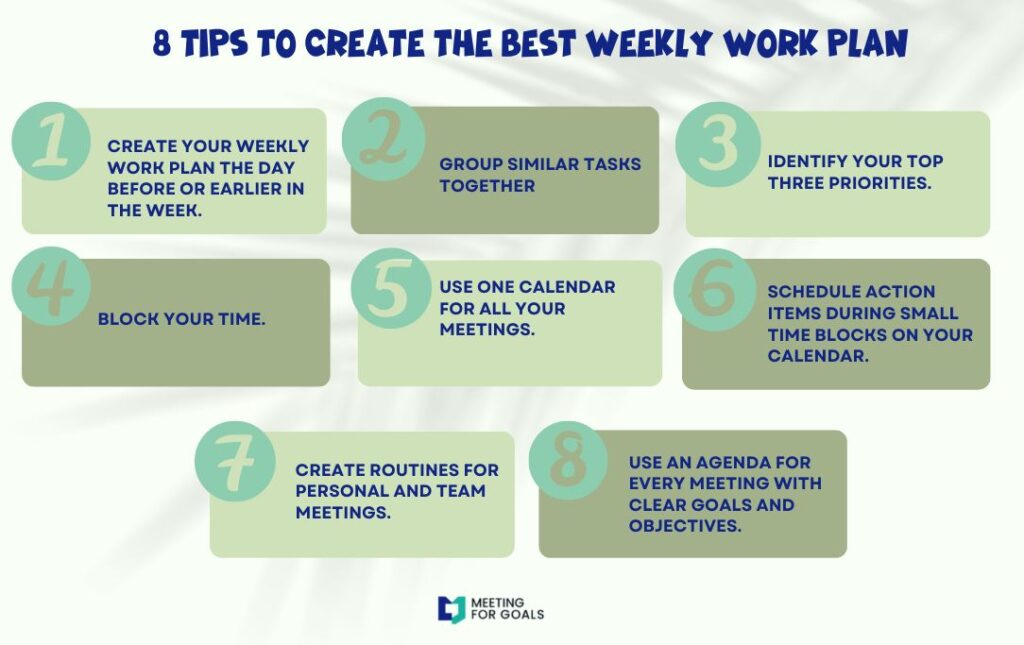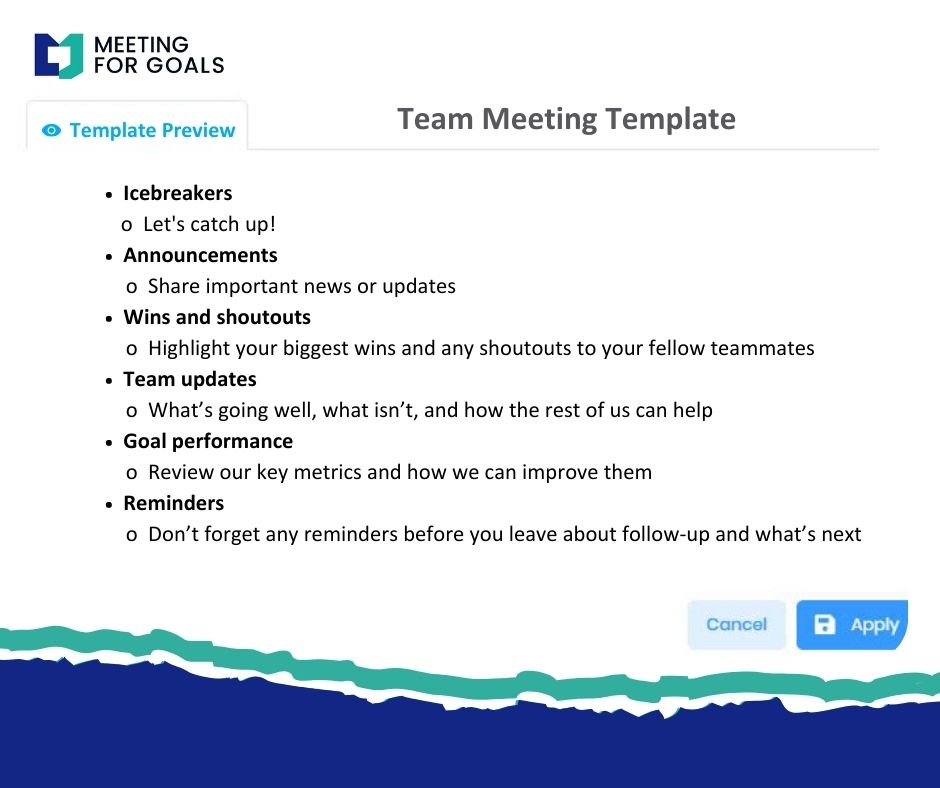Home - Business Meetings - What Is a Skip Level Meeting and Why Have Them?
What Is a Skip Level Meeting and Why Have Them?
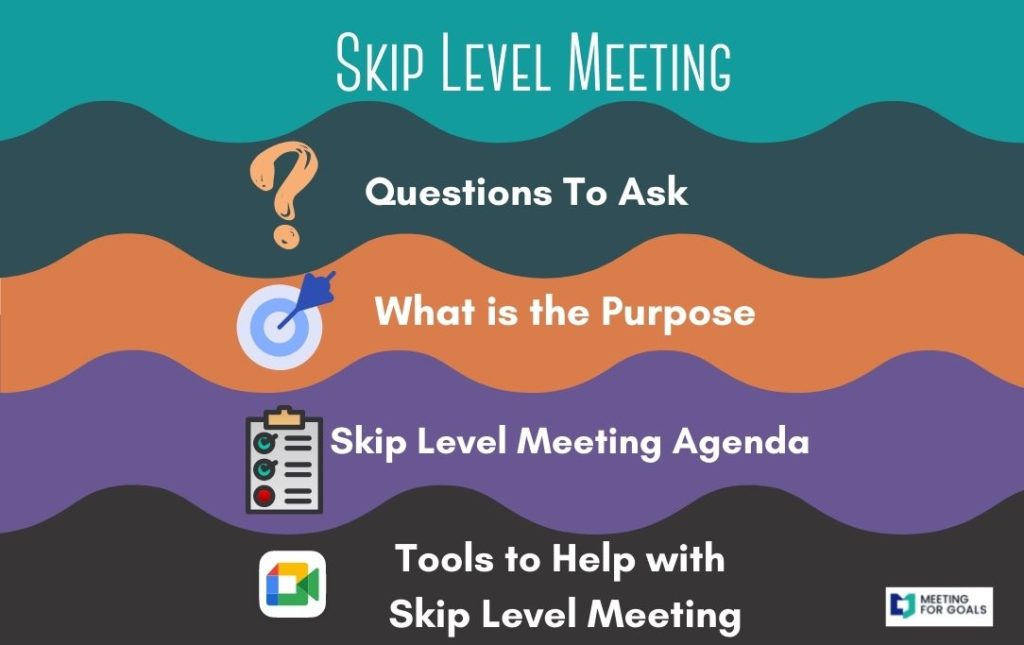
A skip level meeting is essential for every senior manager, CEO, or official managing other managers. It is a one on one meeting providing insights about what your workforce thinks about the company and their recommendations.
Metrics gathered from such meetings are also crucial in developing managers and direct contacts. This review examines skip-level sessions, why they are essential, sample meeting questions, agendas, and more.
Table of Contents
What Is A Skip Level Meeting?
A skip level meeting is a meeting you hold with other employees other than personnel you manage directly. Let’s say you manage five managers who manage 50 other employees (10 each). Generally, you can get updates and reports from the five managers under your direct supervision.
Holding a meeting with one of the 50 employees is what skip level meetings are about. As the name suggests, it involves skipping one level (of management) to find out what’s happening. Skip-level meetings allow managers of managers to get out of the comfort zone and “good” reports. The objective is to determine how folks really feel about the job, company, and other aspects.
Senior managers and CEOs should write clear agendas and questions to get their insights. These meetings should also feature potential benefits for the employees.
Skip Level Meeting Questions
A skip level staff meeting should feature enough questions to steer the agenda. Some questions seek to build rapport, while others involve gathering feedback about the managers and organization. Here are nine questions to include in your meeting:
- What led you to this organization, team, or role, and what’s your favorite thing about being here?
- Where do you see yourself in the next year? What about three years? Do you have something else to do outside work?
- What are some of your recent proud achievements? What inspired you and why?
- Do you feel successful in your role? How do you measure success, and how can you become more successful?
- What’s the best part of working with your manager? What situations would you handle differently if in the role of your manager?
- What do you love about the organization’s culture? Which organization values do you think we uphold? What would you rather do away with?
- Do you have observations you think I might not see from my position? Have you had any concerns or disappointments about the leadership within the past year?
- What do you think of current company goals? Do you feel your role contributes to these goals? What ideas do you have for your team or the organization?
- How effective do you think the management team handles current issues and demands? What processes would you fix, and why?
2 Minute Video
Watch a 2 minute demo of our meeting management software in action
Skip Level Meeting Purpose
Senior managers and CEOs should ponder purpose before arranging a meeting. Ask yourself the following questions:
- Do I need a skip level meeting?
- What will I benefit from an in-person or virtual meeting with a staff member?
- How can I use information gathered from the meeting?
Skip-level meetings between senior managers and staff have a crucial role if appropriately designed. Such arrangements offer eye-opening insights and cultivate stronger bonds between personnel.
Skip level virtual meetings can result in a universal understanding of company visions and priorities. They also create an open environment for idea sharing, innovation, and increased employee engagement. Here are the four primary purposes of a skip level staff meeting:
Building Relationships/Rapport with Staff Members
Senior managers usually get reports from immediate personnel under their management. Skipping the levels to speak with other staff members is one way to build strong relationships and a rapport with the lower-level personnel.
Gaining Insights into Your Teams and Organization
Skip level meetings usually feature questions pondering the general perspective of employees and team on specific subject matters. CEOs can determine what teams are up to and how they feel about the organization and their roles.
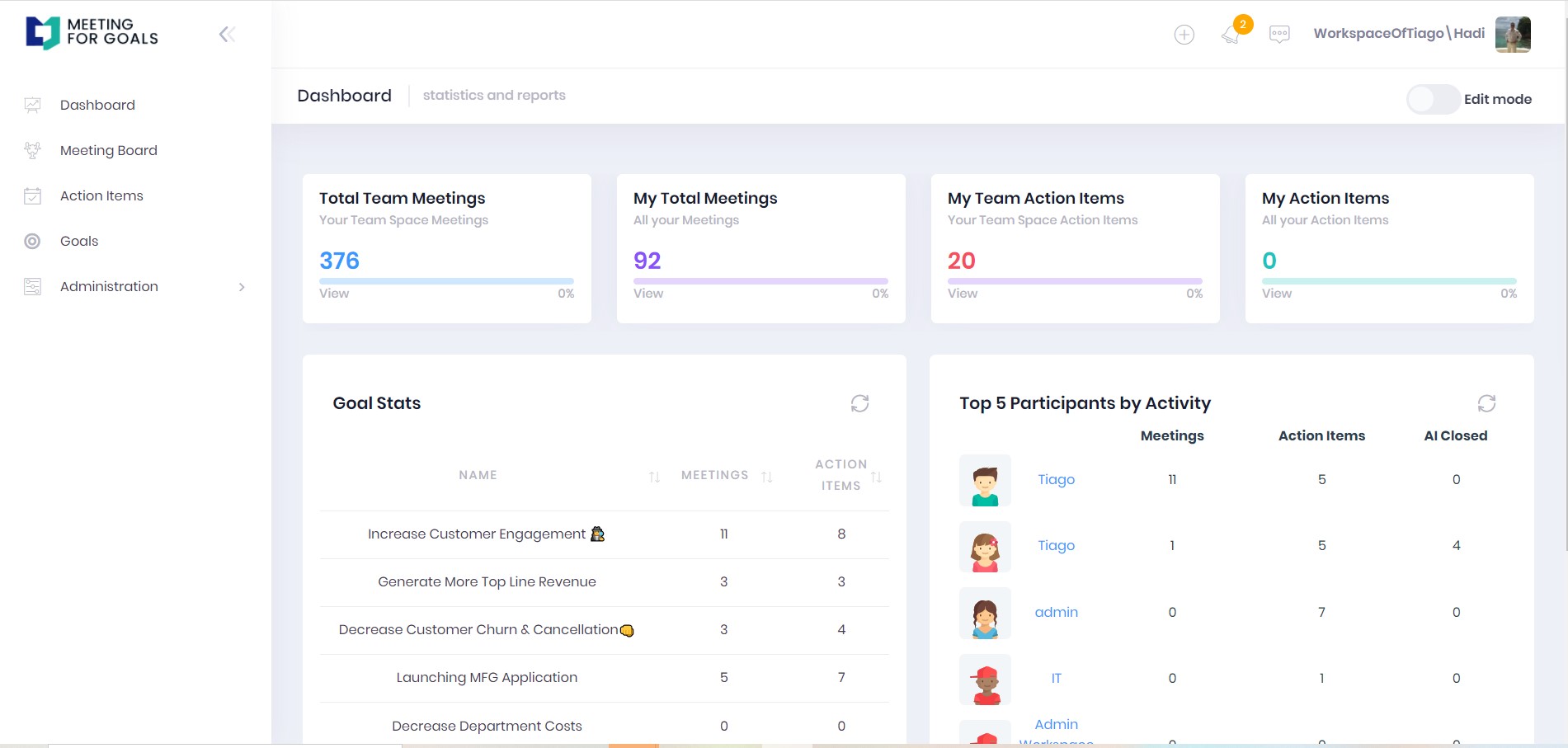
Collecting Feedback about Managers under You
Managers can refine their reports to impress you, choosing to avoid contentious issues down the hierarchy. Skip level meetings seek to bypass managers to get feedback from individual team members. Senior managers can learn more about those they manage, which is crucial for development and performance improvement.
Allows Senior managers to briefly get into the weeds of the business
Skipping the manager and going directly to his team gives the senior manager the opportunity to get into the weeks for a brief period to really get a better picture of the organization. This also helps to give insight into any potential problems that are lurking beneath the surface that the manager has not noticed. It also allows the senior manager to better understand whats happening “in the field”.
Skip Level Meeting Agenda
Agendas drive workplace meetings, so it’s crucial to develop questions aligned with the main agendas. Sessions can progress into deep conversations about various issues, concerns, and topics. Writing a meeting agenda ensures you stay on course and gather valuable feedback.
You can brainstorm a few questions you’d like to ask the staff member and align them with your objectives. Once you are comfortable with the agenda, send them over to the employee to get their input.
You can also add more questions the employee suggests. Tools like Meetingforgoals.com allow managers of managers to set questions and get feedback from staff members before the actual meeting.
Developing skip-level agendas starts with identifying the areas/topics for which you seek feedback. Here are two crucial parts of every skip level meeting agenda:
Adding an Agenda
How to add an agenda instantly on Meeting For Goals
Establishing Rapport
It’s naïve to expect employees to provide honest responses from the start. One on one meeting is more like employee surveys. Your staff may tweak their feedback for fear of upsetting their employers.
Managers of managers should include a few questions to gain trust and build a rapport with the staff. These questions should be at the beginning of the session to ease any tensions and help employees feel more comfortable.
Feedback on Issues/Concerns
The goal of skip level meetings is to gather feedback about various topics, issues, and concerns. Senior managers can include questions to figure out employee challenges, career direction, company concerns, and more.
Recommendations
A skip level meeting should result in a way forward and solutions for navigating identified issues and concerns. Questions seeking recommendations should come towards the end of the session. Make sure you discuss the next steps, key takeaways, and future meetings.
Minutes/Reports
You can use a meeting agenda template featuring sections for note-taking to avoid missing out on critical feedback. Taking minutes of meeting is also vital for planning future sessions. You can keep track of agendas, issues/concerns, and shifting perspectives for more insights.
How Often Should Skip Level Meetings Occur?
There’s no standard frequency for scheduling skip level meetings. Senior managers have a tighter schedule and may not have the time to meet all employees within a week or a month.
Some CEOs meet with staff once every quarter. If you have 10 to 20 employees, you can set aside a week to complete quarterly meetings. However, if you have more than 200 employees, achieving bi-annual meetings with each member may be overwhelming.
Managers of managers should assess their calendars and staff availability to schedule at least one or two meetings with every staff every year. If you have fewer employees, you can increase the frequency of meetings.
Concerning the duration of each meeting, it’s advisable to keep them short and straight to the subject matter. Thirty minutes is often enough for most managers, but you can schedule up to an hour or more to avoid rushing through issues.
Tools to Help with Skip Level Meetings
Many tools are available for senior managers and CEOs looking to organize successful meetings. You can use a meeting agenda template or download a simple structure to record the minutes of meeting.
Senior Managers may want to use tools like Zoom or Google Meet to have virtual meetings which essentially saves them time. There are many great tools out there to facilitate meetings.
Other tools are more sophisticated and offer advanced capabilities. A great example is Meetingforgoals.com, which offers detailed insight into employee perspectives, ideas, and productivity. The tool is also perfect for scheduling and managing skip-level meetings.
With meetingforgoals.com, you can forget useless meetings that don’t advance the organization’s goals. The software makes it easier to align meetings with company goals and set up meaningful agendas.
You can also allocate action and responsibility to save time. What do you think about skip level meetings? Share your experiences with us or sign up for more about leveraging skip-level meetings and virtual meetings.
How to Prepare for a Successful Skip Level Meeting
Preparing for a skip level meeting is crucial to ensure its success. Without preparation, the meeting can lack direction, leading to wasted time and missed opportunities. Here are the essential steps to prepare effectively:
1. Research the Employees You’re Meeting
Understanding the employee’s role, responsibilities, and recent achievements will show that you value their contributions. Before the meeting:
- Review their work history and performance metrics.
- Familiarize yourself with any recent projects they’ve been involved in.
- Seek feedback from their direct manager to identify any standout contributions or concerns.
2. Define Clear Objectives
What do you hope to achieve with the meeting? Having clear goals helps guide the discussion and ensures both parties gain value. Examples of objectives include:
- Gauging employee morale and engagement.
- Understanding obstacles employees face in their roles.
- Gathering suggestions for improving workflows or company culture.
3. Set the Right Tone
Employees may initially feel intimidated or unsure about a skip level meeting. Setting a comfortable and open tone can help ease their nerves. To do this:
- Start the meeting with casual conversation or a compliment about their recent work.
- Reiterate that the meeting is an open forum for honest discussion, not a performance evaluation.
- Encourage transparency by emphasizing that their feedback will help improve the organization.
4. Prepare Thoughtful Questions
Having a list of tailored questions will help steer the conversation. Balance rapport-building questions with those that gather actionable feedback. Examples include:
- What’s one thing you love about your current role?
- Are there any tools or processes you think could improve your team’s productivity?
- How can leadership better support your goals?
5. Leverage Data and Tools
Tools like Meetingforgoals.com can streamline preparation by providing insights into employee engagement, productivity metrics, and team dynamics. Use these tools to:
- Identify patterns or trends in employee feedback.
- Track progress on organizational goals.
- Customize meeting agendas based on the insights gathered.
By thoroughly preparing for a skip level meeting, senior managers can create a productive environment that fosters trust, openness, and actionable outcomes.
Skip Level Meeting Agenda Template
- Purpose of the Meeting
- Building Rapport with the Employee
- Discussion on Role and Responsibilities
- Feedback on Manager and Team Dynamics
- Suggestions for Organizational Improvement
- Employee Career Goals and Development
- What Can I Do To Help
- Closing and Next Steps
Common Challenges of a Skip Level Meeting and How to Overcome Them
Despite their potential, skip level meetings can face challenges. Anticipating and addressing these obstacles ensures they remain effective and valuable. Here are common challenges and strategies to overcome them:
1. Employee Reluctance to Speak Up
Employees may hesitate to share honest feedback due to fear of repercussions or loyalty to their direct manager. To overcome this:
- Emphasize confidentiality: Assure employees that their feedback won’t be attributed to them directly.
- Build trust: Start with lighthearted questions to build rapport before diving into deeper topics.
- Use anonymous tools: Allow employees to submit questions or concerns anonymously before the meeting using platforms like Meetingforgoals.com.
2. Lack of Trust Between Management Levels
Skip level meetings can inadvertently cause tension between senior managers and middle management. Managers might feel undermined or excluded. Address this by:
- Communicating openly with managers: Clarify the purpose of skip level meetings and emphasize that they are not meant to bypass or criticize their leadership.
- Sharing feedback constructively: Highlight positive observations and actionable insights without singling out individual managers for criticism.
3. Time Constraints
Senior managers often have tight schedules, making it difficult to prioritize skip level meetings. Solutions include:
- Grouping meetings: Meet with small groups of employees to gather broader feedback in a single session.
- Using virtual tools: Platforms like Zoom or Google Meet can save travel time and make scheduling more flexible.
- Scheduling quarterly or biannual meetings: Plan meetings well in advance and stick to a consistent schedule.
4. Navigating Sensitive Topics
Employees might bring up issues that are sensitive or critical, such as concerns about leadership or workplace culture. Here’s how to handle such situations:
- Listen actively: Show empathy and avoid defensiveness, even if the feedback is tough to hear.
- Take actionable steps: Follow up on the issues raised and provide updates to employees on the progress.
- Set boundaries: If a topic is beyond your scope, guide employees to the appropriate resources or personnel.
By addressing these challenges proactively, skip level meetings can remain a powerful tool for fostering transparency and driving organizational improvement.
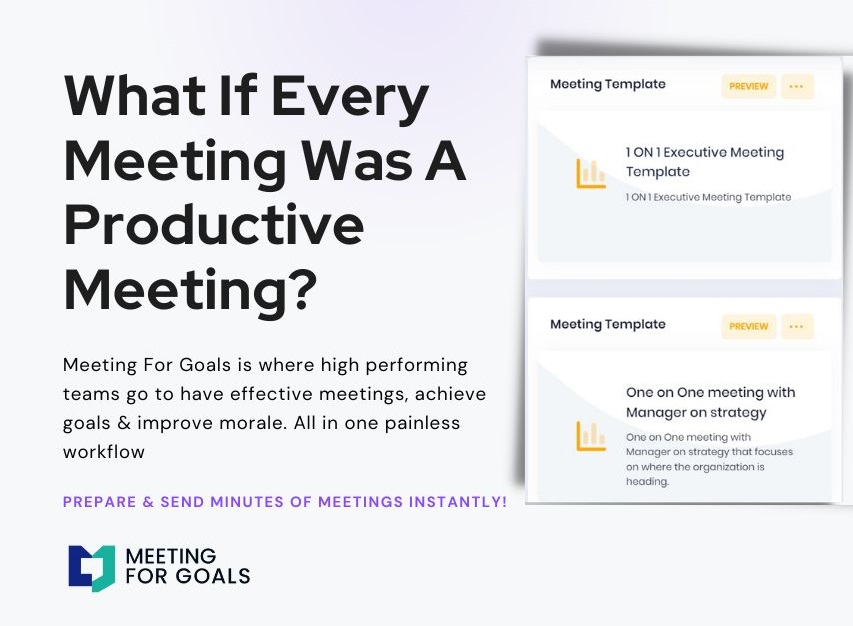
Final Thoughts
Skip level meetings are an essential tool for leaders looking to foster transparency, boost engagement, and drive organizational success. By preparing thoroughly, addressing challenges, and learning from real-world examples, senior managers can unlock the full potential of these meetings.
Want to transform your meetings into productive, goal-oriented sessions? Explore how Meetingforgoals.com can help you prepare, execute, and follow up on skip level meetings effortlessly. Sign up today to start building a more connected and successful team!

Hadi Ossaily
Hadi is the Co-Founder and CEO of Meetingforgoals.com & Global Saas Partners. Hadi has been an entrepreneur for over 10 years and has founded, acquired & exponentially grown several online businesses.

How To Reduce Meetings in the Workplace
Introduction Every manager has been in a meeting that went on way too long, or spent too much time discussing things that could have been

Tips to improve your meeting culture & Symptoms of bad meeting culture
Introduction Meetings are an essential part of every company’s life, but they can also be a huge waste of time. The good news: with some

Why are meetings important? Their Advantages & Tools to Have Great Meetings
Why Are Meetings Important & The Importance of Meetings Introduction Meetings are a cornerstone of effective teamwork and organizational success. Whether it’s discussing new strategies,

